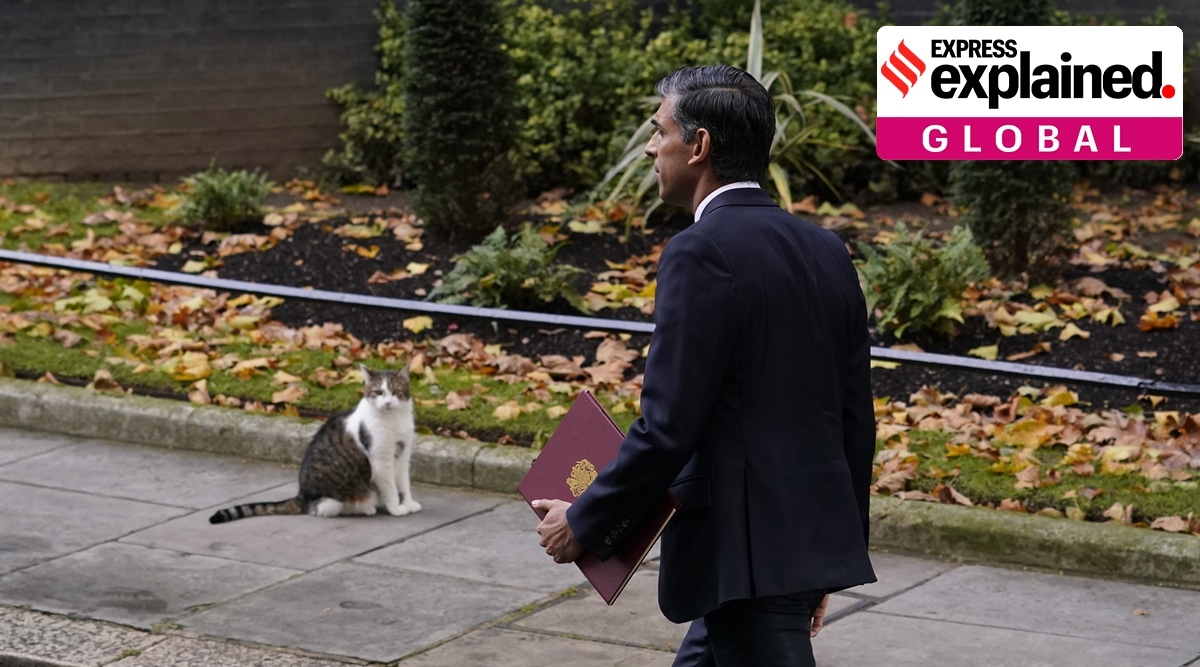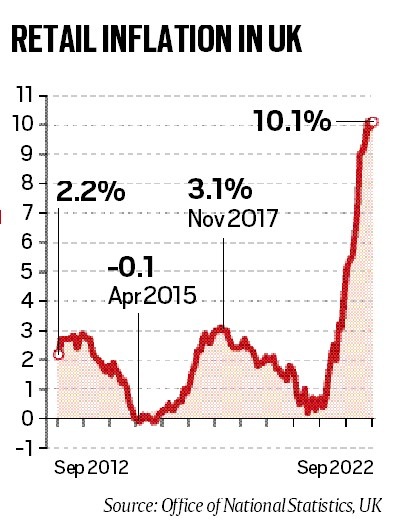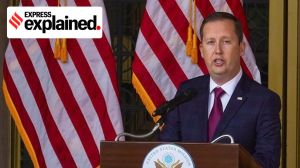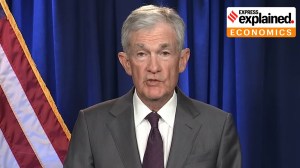In his first address, Prime Minister Sunak said: “Our country is facing a profound economic crisis. The aftermath of Covid still lingers. Putin’s war in Ukraine has destabilised energy markets and supply chains the world over”.

He said that the goal of the Truss government to boost growth was a “noble one”; however, “mistakes were made”, and he had been elected leader of the Tories, and PM, “in part, to fix them”. A medium-term fiscal statement is to be presented before Parliament on October 31.
Promises in Tory manifesto
Prime Minister Sunak committed to delivering on the Conservative Party’s 2019 election manifesto. The Tories had won under the leadership of Johnson, with the promise to “get Brexit done”, and to follow through with the goal of making Britain stronger and “unleashing [its] potential”. This is what the manifesto promised:
- Strengthening the National Health Service (NHS), the UK’s publicly funded healthcare system: This meant upgrading existing hospitals, building new ones, and increasing the salaries of staff, including nurses, midwives, and cleaners. This was to be funded by the biggest-ever cash increase in the budget allocation to the NHS.
- Investing in schools: Similar to the NHS, this move involved increased funding to schools and teaching staff.
- A stronger economy: This involved tax cuts for the working class, protection of pensions for the retired, and levelling up the skills of British workers and making them more employable.
- Safer streets: This included more and better equipped police personnel and more prisons — again, all this required more funding.
- Tighter controls on immigration: This was one of the key reasons why Britain voted for Brexit in the first place.
However, all this was before the twin shocks of the Covid-19 pandemic and the war in Ukraine, which dented the British economy and upended the government’s fiscal math.
The UK’s cascading crises
A STAGNANT ECONOMY: The UK’s economic problems began long before Sunak had even joined politics. (He became an MP in 2015.)

Story continues below this ad
In terms of overall output (in US$), the economy has been largely stagnant since the start of the 2008 Global Financial Crisis, which hit one of the UK’s biggest growth drivers — the financial centre of London.
The decision to leave the EU made matters worse. It became tougher for the UK to trade with its closest trading partners in Europe. The higher compliance costs hit small businesses, and several businesses were forced to move out of the UK in order to protect their market share.
It was in this phase of reduced GDP per capita and reduced GDP per person employed, that the Covid disruption and the war in Ukraine hit the British economy.
DERAILED GOVERNMENT FINANCES: According to an analysis by the Institute of Fiscal Studies in the UK, “In 2018–19, revenues were sufficient to cover day-to-day (‘current’) spending for the first time since 2001–02, meaning that the government was only borrowing for investment spending”. But thanks to increased “spending to mitigate the economic impact of the pandemic and associated lockdowns on households, businesses and public services”, this ratio of revenues to current spending went from a surplus to a deficit of over 11% (of the national income) within two years.
Story continues below this ad
The sharp worsening of public finances essentially meant that in the years to come, the government would have to cut spending and raise revenues to balance its books. That in turn would require a new round of austerity for public services — be it health, education, or policing. It would involve difficult and politically sensitive decisions such as asking nurses, who had risked their lives during the pandemic, to settle for lower-than-promised raises.
GROWING COST OF LIVING CRISIS: The war in Ukraine set off an unexpected energy price inflationary spiral. The UK’s retail inflation, which typically stayed below 2.5% (often below 1%), skyrocketed to double-digit historic highs.
Coming on the back of reduced incomes and livelihoods, this inflationary spike morphed into a broader “cost of living” crisis — which is essentially a decline in purchasing power. This has triggered labour action across several segments of British life — workers in the railways, royal mail, docks, education, nursing, etc. — are either already on strike or threatening to go on strike.

THE ‘MORON’ PREMIUM: The final straw that broke the camel’s back was the Truss-Kwasi Kwarteng decision to increase spending (including giving tax cuts to the richest) by simply borrowing more.
Story continues below this ad
This spooked the markets; investors sold British assets such as gilts (government bonds) and currency. The resultant fall in the pound’s exchange rate made imports even costlier and the sale of gilts meant that interest rates across the economy skyrocketed. The increased interest rates are being referred to as the “moron premium” that all British borrowers have to pay.
Sunak’s loaded in-tray
The Prime Minister has no time to settle into his job. As he seeks to hit the ground running, there are three major challenges that he must address immediately.
- Containing inflation while addressing the cost of living crisis. But tighter monetary and fiscal policies — read higher interest rates and higher taxes, lower spending — will make the cost of living crisis even worse.
- Improving the government’s fiscal health while preparing the grounds for growth. Higher or newer taxes will make Britain less attractive to business investments — read fewer jobs — at a time when it is struggling to create its foothold in the post-Brexit trading landscape.
- Re-establishing political stability. Having a well-established polity — which means stable governments and orderly transitions — is a key reason why developed countries such as the UK get the best terms in international trade and business. But the Conservative Party is a deeply divided house today — and uniting the Tories is the necessary first step for any economic decision-making to be taken seriously by the markets and the rest of the world.










































